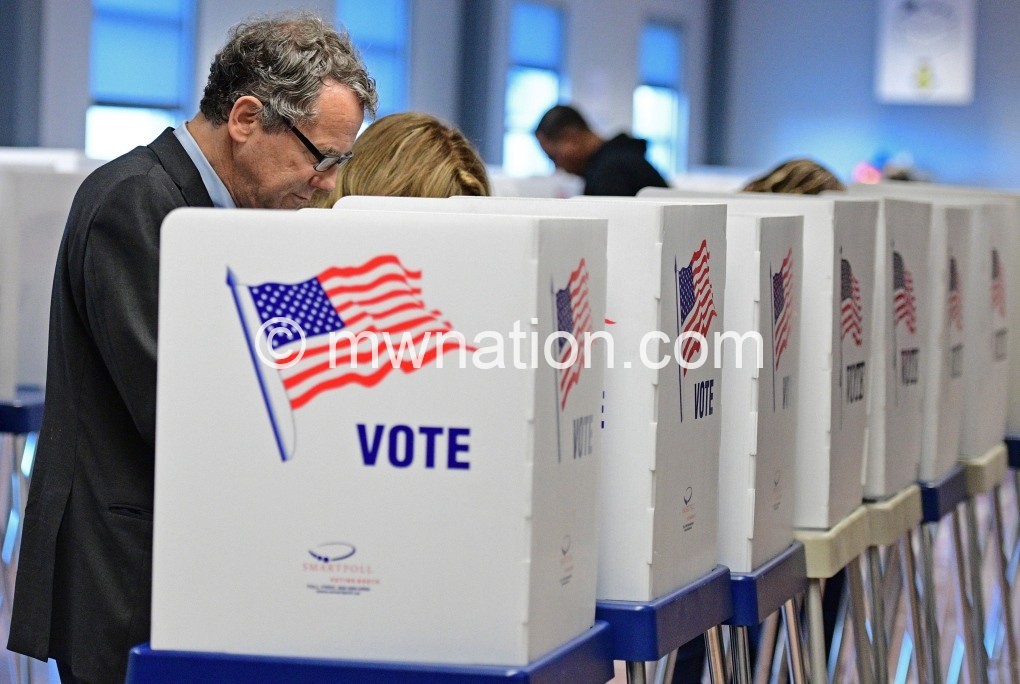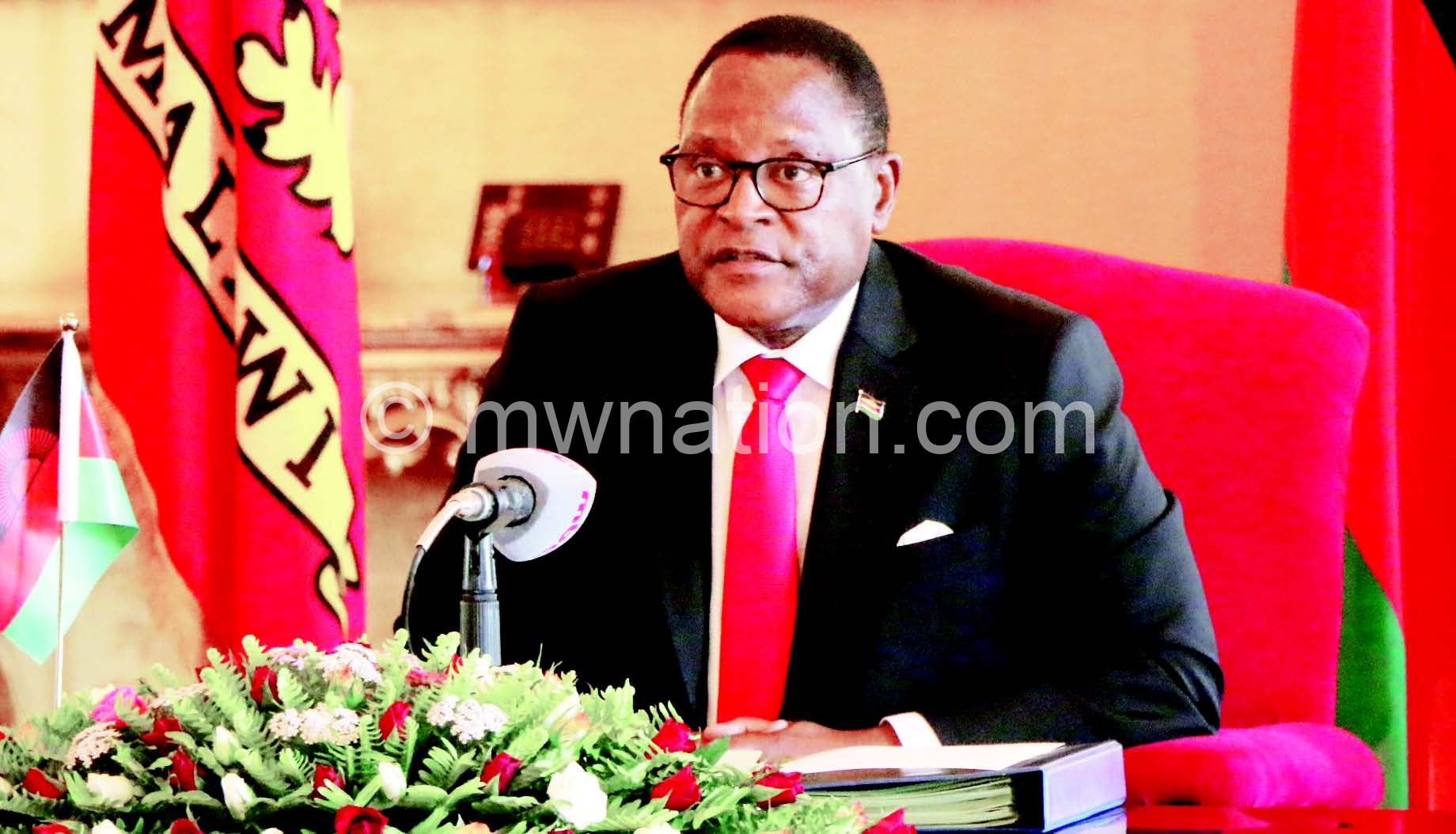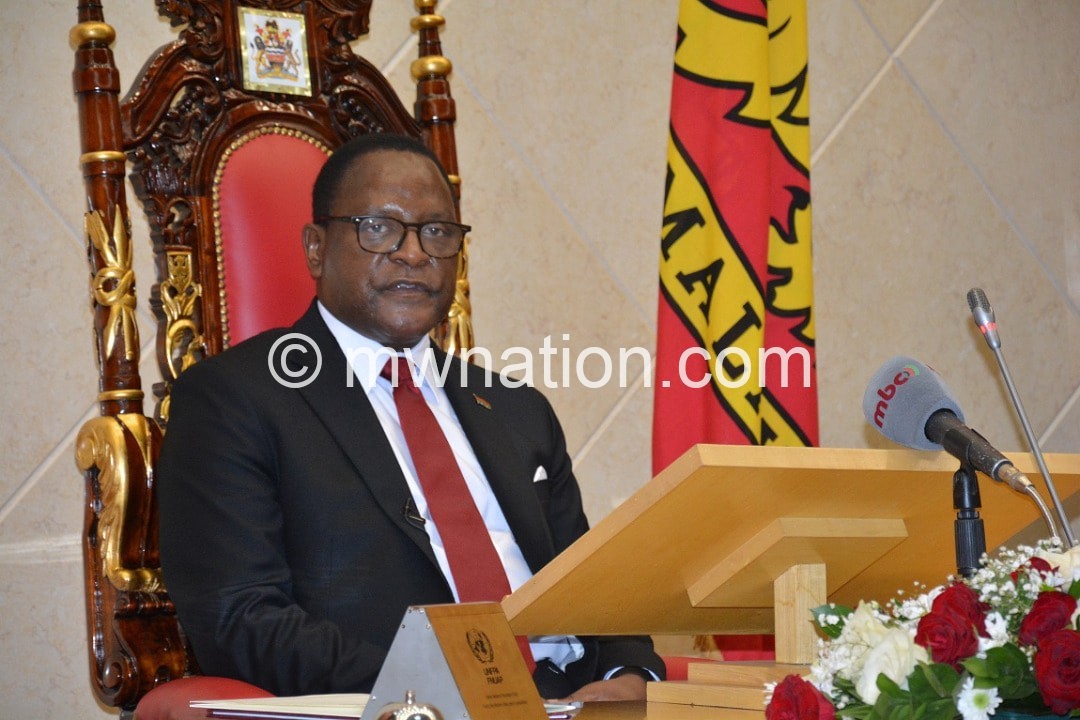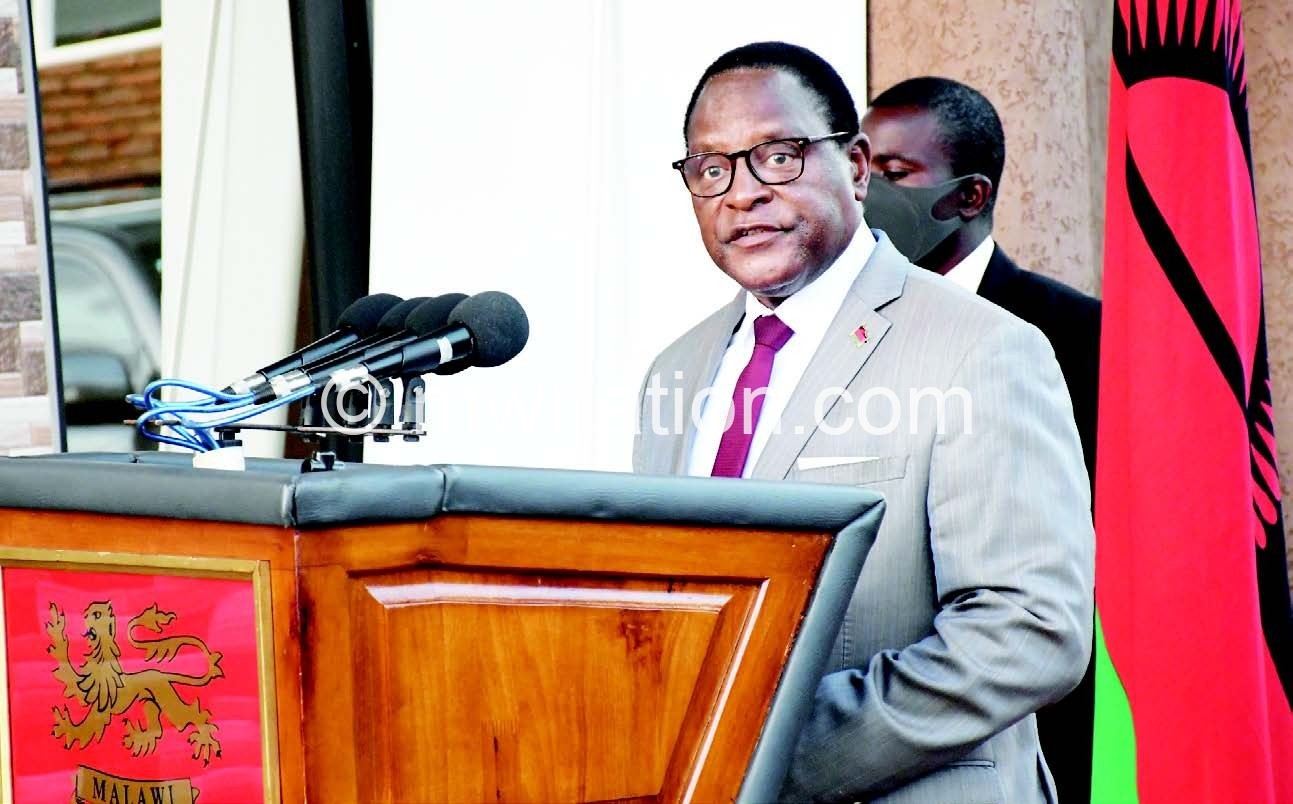Keep grudges from political podiums
There is a popular adage that goes: Ukamalimbana ndi chitsiru nawenso umakhala chitsiru (If you fight a stupid person, you become one of them). On one hand, the adage sounds rough, but on the other end plays the advisory role.
We, on the streets believe in pressing the red button before someone falls into avoidable traps. And as the 2019 polls draw closer, our fingers will hardly leave the red buttons. The reason is that the quality of politics in Malawi continues to deteriorate. Yes, constructive politics lives too far from Malawi soils.
We on the streets can bet our lives against anyone who thinks the country has ever had a political party that lives for the interests of the people. Yes, if it is not recycling, then it is rebranding just to reduce the enemy to zero.
We lack a shared vision and it seems every politician believes he/she can change things by having the power and not by complementing another.
No wonder, we have over 20 political parties. They all want to rule. Even party leaders are prone to revolts by their own members.
Since 1994, all political parties that have ruled Malawi are products of revolts. First was Bakili Muluzi with his United Democratic Front (UDF). He was introduced to politics by Dr Hastings Kamuzu Banda and later on led a campaign to end Banda’s one party rule.
Then came Bingu Wa Mutharika. UDF campaigned and won him the presidency in 2004, but just months into power, he protested the tenets of the party to form his Democratic Progressive Party (DPP).
In 2012, history repeated itself when Joyce Banda, who was by then squeezed to the feet by her party, DPP, dumped the party to launch the People’s Party (PP) she ascended to power following the sudden death of Bingu.
Now, the political arena has welcomed UTM, a political party being led by individuals who are claiming to be unhappy with the culture in the DPP.
It is about time and circumstances, but in a democracy, this is normal. In other words, it demonstrates that Malawi’s democracy is maturing.
However, this achievement is deprived of constructive politics. Each passing election has only exposed the electorate to politics of retaliation.
If we press our refresher button to past election campaigns, it becomes vivid in our memories of how politics of vengeances has defined our way of doing politics.
While, we on the streets, thought the 2019 race would give us a new way of doing politics, the opposite is growing roots on the ground. From early this year, political discourse in the digital media has been taking turns in favour of one political party after another.
DPP, UTM and Malawi Congress Party (MCP) have been enjoying popularity. This is why; we on the streets are not surprised with the recent Institute of Public Opinion (Ipor) survey findings which say the three are the most popular political parties on the land.
But now, the question that is bothering us, we on the streets is: What new has the three been offering to Malawians when they take to political podiums. If your ears are with us, it is politics of reprisal, full of hate and demeaning speech. A political rally can hardly end without exposing or insulting opponents. It is like a means of competition. Surprisingly, this is what has been winning elections in the past.
But we on the streets believe the 2019 polls will not favour anyone wasting time fighting opponents through hate speech preached on political podiums. Malawians want issues and not politics of dressing down opponents.
Keep your grudges away from political podiums and tell us issues that will serve our interests. Only that will help you win votes from the neighbours camp.
Ignore political opponents at your own peril because it is an ethical issue with the potential to cost one some votes. One’s enmity with someone cannot spread across. It is a miscalculation to believe electorate votes-out their enemies.
No approach should target only those who hate a particularly candidate. The 2019 polls campaign should be about winning supporters of an opponent and this cannot be done by demonstrating a character of vengeance because it yields sympathy for the other camp.
—*Sharra is a guest writer of this column.





